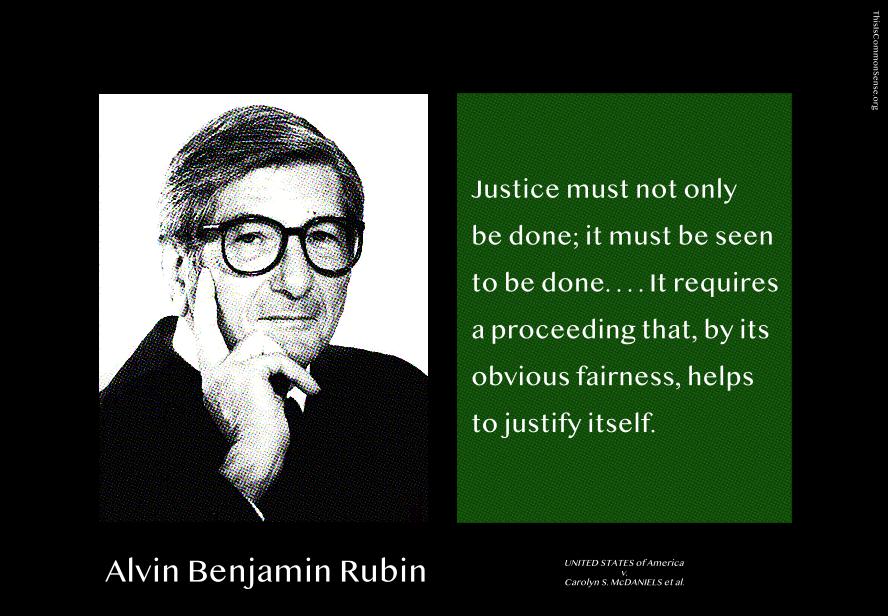However elusive the concept may be, there is a universal human feeling, not confined to philosophers, lawyers, or judges, that there is a quality known as justice, and that it is the aim of legal institutions to achieve it. The Constitution invokes that sense and sentiment in its first purposive phrase: it is ordained “to establish justice.” Madison, writing in Federalist No. 51, called it “the end of civil society.” It ever has been and ever will be pursued until it be obtained, or until liberty be lost in the pursuit.” This feeling that justice is a supreme goal, this sense that it is a predicate to organized society, is no mere yearning, for it is only in a fair proceeding, one that comports with our sense of justice, that we can with any legitimacy call another human being to account.
Justice must not only be done; it must be seen to be done. The interest of justice requires more than a proceeding that reaches an objectively accurate result; trial by ordeal might by sheer chance accomplish that. It requires a proceeding that, by its obvious fairness, helps to justify itself.
Senior Judge of the United States Court of Appeals for the Fifth Circuit Alvin Benjamin Rubin, U.S. v. McDaniels, 379 F.Supp. 1243 (E.D. La. 1974).
Categories
Alvin Benjamin Rubin
